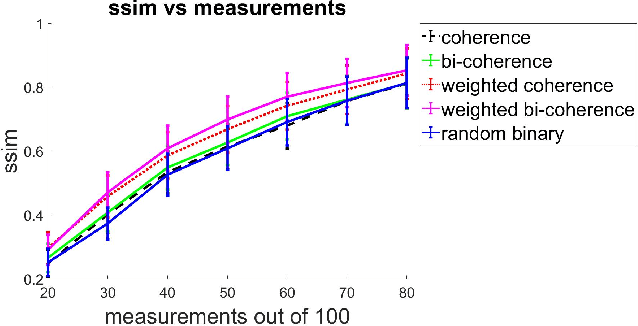A Weighted Generalized Coherence Approach for Sensing Matrix Design
Paper and Code
Oct 06, 2021



As compared to using randomly generated sensing matrices, optimizing the sensing matrix w.r.t. a carefully designed criterion is known to lead to better quality signal recovery given a set of compressive measurements. In this paper, we propose generalizations of the well-known mutual coherence criterion for optimizing sensing matrices starting from random initial conditions. We term these generalizations as bi-coherence or tri-coherence and they are based on a criterion that discourages any one column of the sensing matrix from being close to a sparse linear combination of other columns. We also incorporate training data to further improve the sensing matrices through weighted coherence, weighted bi-coherence, or weighted tri-coherence criteria, which assign weights to sensing matrix columns as per their importance. An algorithm is also presented to solve the optimization problems. Finally, the effectiveness of the proposed algorithm is demonstrated through empirical results.
 Add to Chrome
Add to Chrome Add to Firefox
Add to Firefox Add to Edge
Add to Edge